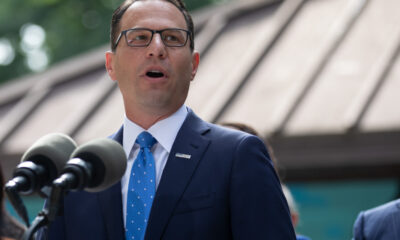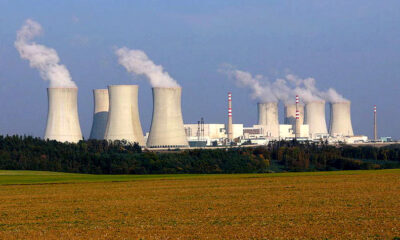Executive
Moves By Ford and Hertz Prove EVs Are Still the ‘Next Big Thing’
Electric vehicles (EV) have never fulfilled their promises, which is why Ford and Hertz have discontinued them.
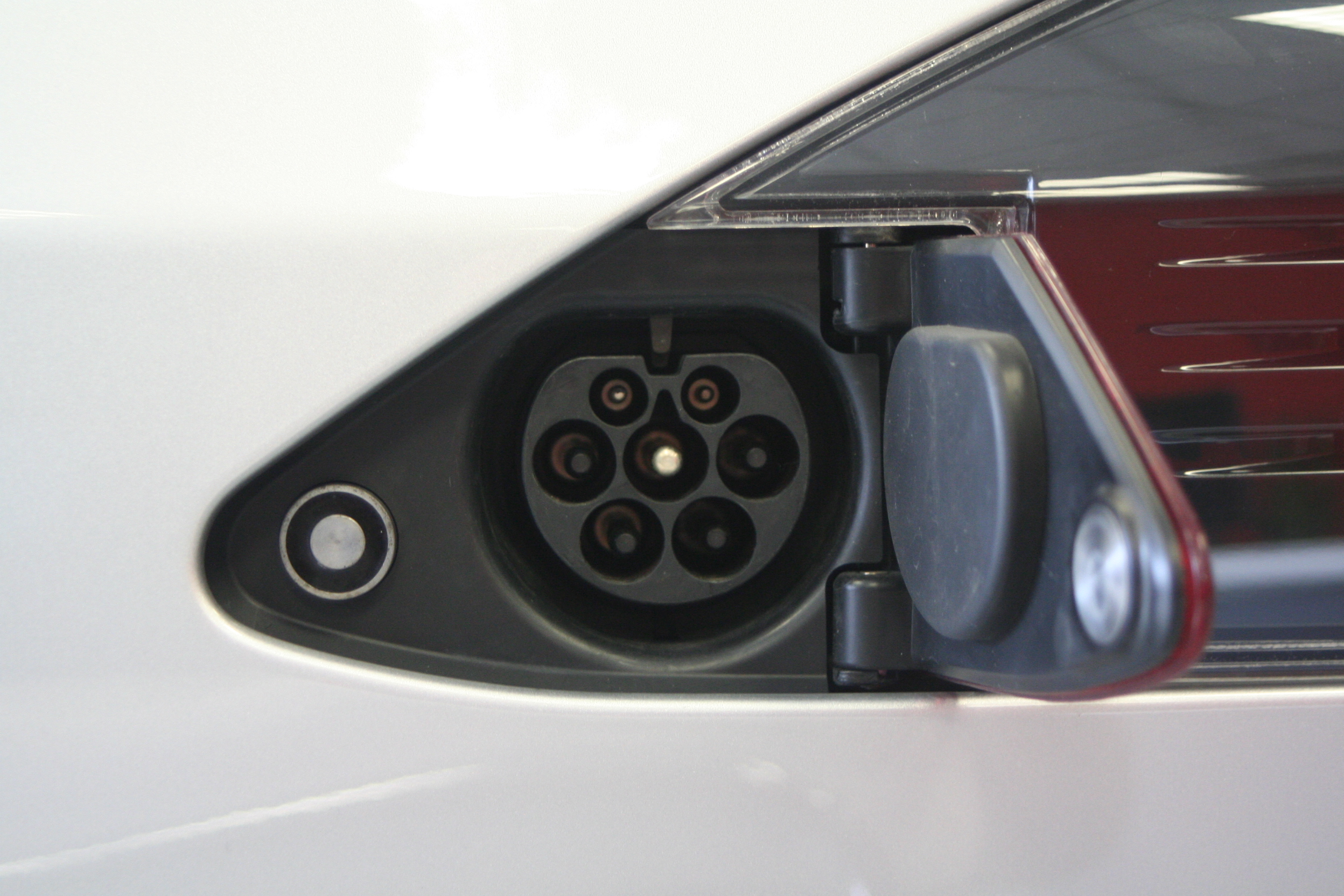
Electric vehicles are the Next Big Thing, and they always will be.
More proof of that reality came last week when Ford Motor Co. announced for the second time in two months that it was slashing production of its all-electric Lightning pickup truck. The only thing surprising about Ford’s latest announcement is that it took the Dearborn-based auto giant so long to understand that only a small segment of car buyers want an EV.
Indeed, the history of the EV is a century of failure tailgating failure. The problems with EVs are obvious: limited range, slow recharge rates, lack of recharging stations, and high costs, particularly when compared to conventional cars. In short, the problems today are the same as they were back in Thomas Edison’s day.
Despite these facts, the Biden administration claims the U.S. needs to dramatically ramp up EV production due to concerns about climate change. The Biden EPA’s proposed tailpipe rule could require two-thirds of new vehicles sold in the U.S. to be all-electric by 2032.
But EVs have never lived up to the hype. Consider these claims:
In 1901, the Los Angeles Times declared, “The electric automobile will quickly and easily take precedence over all other.”
In 1915, the Washington Post asserted that “prices on electric cars will continue to drop until they are within reach of the average family.”
In 1959, the New York Times claimed the “Old electric may be the car of tomorrow.” It claimed EVs were making a comeback because “gasoline is expensive today, principally because it is so heavily taxed, while electricity is far cheaper” than it was in the 1920s.
In 2014, author Tony Seba declared, “By 2025, gasoline engine cars will be unable to compete with electric vehicles.” He continued, claiming conventional vehicles “are toast.”
Hertz doesn’t think they are toast. On January 11, the car rental giant announced it was dumping 20,000 of the Teslas it purchased to “better balance supply against expected demand.” Translated into plain English, that means Hertz’s customers prefer conventional cars. The company also said it aims “to eliminate a disproportionate number of lower margin rentals and reduce damage expense associated with EVs.” Last year, Hertz CEO Stephen Scherr said EVs cost “about twice in terms of damage cost repair” than a conventional vehicle. Hertz’s disastrous EV road trip will cost it $245 million in higher costs and depreciation.
EVs are a niche-market product, not a mass-market one. Further, that niche is defined by class and ideology. About 57% of EV owners earn more than $100,000 annually, 75% are male, and 87% are white.
Last March, Gallup reported, “a substantial majority of Republicans, 71%, say they would not consider owning an electric vehicle.” That finding was confirmed by a report published last October by researchers at the University of California, Berkeley, who found that “counties with affluent left-leaning cities” like Cambridge, San Francisco, and Seattle “play a disproportionately large role in driving the entire national increase in EV adoption.” The researchers found that over the past decade, about half of all the EVs sold in the U.S. were sold in the most heavily Democratic areas of the country. The report found a “strong and enduring correlation between political ideology and U.S. EV adoption. During our time period, about half of all EVs went to the 10% most Democratic counties, and about one-third went to the top 5%.”
The study concluded, “there are now over 100 different EV models for sale in the U.S. Enough time has passed — one might have thought — for the U.S. EV market to have broadened considerably.” That hasn’t happened. Instead, the researchers concluded, “We do not find evidence that the U.S. EV market is broadening across the political spectrum.”
In other words, Ford and the other big automakers have been spending tens of billions of dollars on new battery plants and EV factories to cater to the whims of a tiny segment of the overall car market — a segment heavily concentrated in a handful of wealthy, liberal cities. That’s a lousy business strategy. But it is an even worse strategy for federal policymakers who must be responsive to the transportation needs of every American, not just those who reside in fancy zip codes.
While the EV meltdown was predictable, there’s some good news here. Slashing EV output means the U.S. auto sector won’t be so reliant on China for critical metals, minerals, and magnets. In 2021, the International Energy Agency reported that over 90% of EVs rely on high-strength permanent-magnet synchronous motors. The market for those motors, and the rare earth elements needed to make them, is dominated by China.
The Departments of Energy and Commerce have issued stark warnings about the national security implications of relying on Chinese magnets. In early 2022, the Department of Energy reported, “Nearly all supply chain stages are concentrated in China and the chemistry associated with processing rare earths is challenging, expensive, and hazardous. Furthermore, substitution is difficult through the supply chain due to the unique characteristics and technical advantage of rare earth magnets.”
Also, in 2022, the Commerce Department issued a report that projected that U.S. demand for high-strength EV magnets would quintuple between 2020 and 2030. That report concluded that America’s dependence on imported magnets “threaten to impair the national security as defined in Section 232 of Trade Expansion Act of 1962, as amended.”
The hard reality is that the Biden Administration’s EV mandates are bad for U.S. energy security and national security. The mandates ignore history and consumer preferences and will give China control over critical supply chains.
The EPA’s EV mandates should be scrapped.
This article was originally published by RealClearEnergy and made available via RealClearWire.
Robert Bryce is an author, film producer, and host of the Power Hungry Podcast. He writes on Substack: robertbryce.substack.com His new docuseries, Juice: Power, Politics, & The Grid will be released January 31, see: juicetheseries.com
-

 Civilization3 days ago
Civilization3 days agoA Better U.S. Strategy for Greenland Than Annexation
-

 Education3 days ago
Education3 days agoIgnoring the Science: The Curious Case of Cell Phone Bans
-

 Guest Columns4 days ago
Guest Columns4 days agoWaste of the Day: Thousands of Earmarks in Illinois State Budget
-

 Education4 days ago
Education4 days agoA Solid Core Enlivens Free Speech and Viewpoint Diversity
-

 Executive3 days ago
Executive3 days agoWaste of the Day: Utah University Trustees Don’t Know Their Job
-
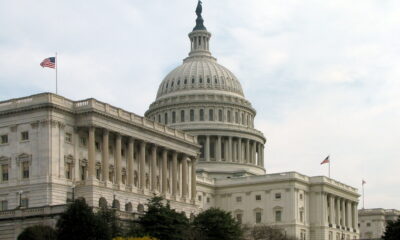
 Civilization4 days ago
Civilization4 days agoEnd the Filibuster – Or Stop Pretending To Govern
-

 Executive4 days ago
Executive4 days agoWaste of the Day: $8 Water Filter Costs the Government $156
-
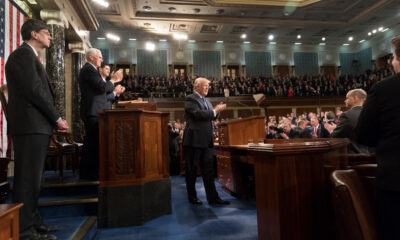
 Civilization2 days ago
Civilization2 days agoTrump’s Longest Speech, His Shortest Margin for Error



